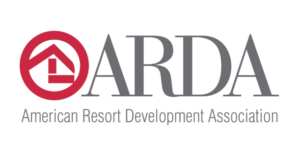The Changing of the Economic Guard
Friday, November 11, 2005
A new Chairman is scheduled to assume command of the Federal Reserve. How will this affect the timeshare market?
Do you remember who was Chairman of the Federal Reserve before Alan Greenspan spent eighteen years in the job?
Neither does anyone else.
Former Federal Reserve Chairman, Paul A. Volcker, has not slipped from our memories because he failed to leave his mark on the American economy. Volcker in fact, is credited with taking runaway US inflation from an ugly 9% in 1980 to a highly tolerable 3.2% by 1983.
It’s just that Alan Greenspan has been the chief watchdog of the American economy for such a long time—two and a half Bushes, one Reagan, and a Clinton, to be exact. We apparently assumed that despite the absence of a clutch bag and a tiara, Greenspan, was like one of the British royals, and would hold the job forever.
Not true. On January 31, 2006, Alan Greenspan will pass the torch to Chairman-nominee, Ben Bernanke. Like Greenspan, Volcker, and all who have gone before him, Bernanke will face the challenges of balancing healthy growth with an appropriately healthy measure of inflation.
The strategy is pretty simple: when prices go too high, the Fed pushes up interest rates. We stop buying things on borrowed money, and prices come back down. Of course, it’s not really simple at all. Especially since the US Federal Reserve doesn’t actually control any part of our economy except interest rates. The ups and downs in our financial system are a mixture of backlash response to changing interest rates and pure chance.
Paul Volcker accomplished no monetary miracle other than the predictable result that occurred when the Reserve temporarily kicked interest rates into double-digit numbers in order to bring inflationary growth under control once again. Alan Greenspan has been using this same technique in moderation throughout his time at the helm, and using it aggressively since June 2004, when the Federal Reserve started tightening the screws on borrowing and lending.
In the summer of 2004, the federal funds rate (the interest rate at which banks loan money to each other) was at an amazing low 1%. The prime lending rate (the interest rate at which banks loan money to consumers) was sitting at only 4%. So Greenspan and his merry men began nudging up the interest rates, in tiny, palatable quarter points. And Bernanke will have no choice, but to follow the plan—at least for a little while. After all, he can’t start out appearing to be soft on inflation.
If you are buying real estate—whether it is a new house, office building, vacation home, or timeshare property—and you are planning to borrow money for your purchase, it is probably better to take out that loan now than to wait until the first or second quarters of 2006. On the flip side, if you are the seller, this may be a good time to get your property on the market, while buyers can take advantage of current interest rates.
No real magic ever happens at the Federal Reserve. No one gets sawn in half or even pulls a scraggly rabbit out of a top hat. But when it comes to juggling acts, Bernanke has his work cut out for him filling the shoes of Greenspan and Volcker.


